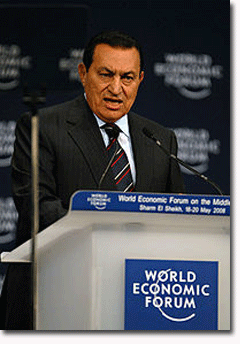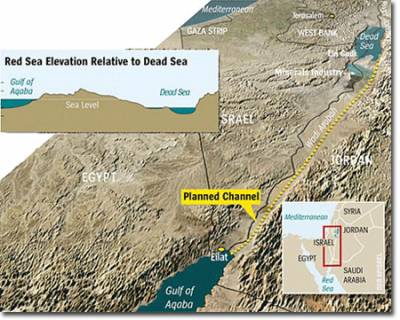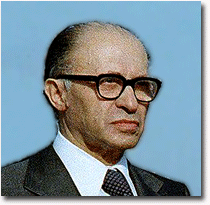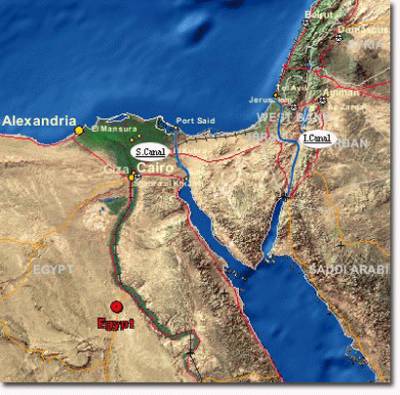 !لفصل الثالث: قناة البحر الميت "الإسرائيلية".. نظرة على الخطر The Dead Sea "in Israeli" - clear danger!
(Adapted from Egyptian publications)
http://www.ageg.net/book/export/html/80 The more I find materials related to the theme of "navigable channel in Israel, the stronger my surprise: how the topic" hurts "the Arabs, and how high the degree of silencing it in Israel!
Further material from the above Egyptian site, I suggest you educate. For me, this story was a complete surprise.
(Yuri Goldman, author of the project). Can not relax. Israel continues its attempts to implement the Arab region, the controversial projects, and his actions are shrouded in mystery. The main objective of the Zionist entity's attempt to lead the region to influence and dominate, Israel is a key player, who tries to constantly and secretly, to keep abreast of conflict at regional level. The path to the last of his projects - "saving the Dead Sea", laid in 2005 at the Davos forum, it should be, in Jordan, after finalizing a few more forums. We must stop this project because it is in the future is multi-faceted threat. He brings to us a number of strategic risks, as well as damage to nature, which affects the national security of Arab countries bordering on Palestine and the Zionist entity. Quite unexpectedly it was learned that a secret between Israel and the Hashemite Kingdom of Jordan and the Palestinian Authority have been negotiated, which according to the media, took more than three years and ended with agreement on the establishment of such a channel.
Be commended: - project has its thrilling power. Draft water channel length of 180 km connects the Red and Dead seas, laid on the Jordanian side of the border with Israel and pumps 2 billion cubic meters of water per year into the Dead Sea, helping to achieve five goals: - Complete an annual loss of water in the Dead Sea from evaporation and drought. - Creating a desalination plant will provide the Kingdom of Jordan, Israel and the Palestinian Authority in the amount of water about 850 million cubic meters. - Creation of a power plant to supply the Kingdom of Jordan, Israel and the Palestinian Authority about 550 megawatts of electricity. - In the three countries, issues irrigate vast areas of deserts. - Several projects in the field of tourism and tourist resorts on the Dead Sea. The agreement was signed at the World Economic Forum on the Dead Sea May 22, 2005 by the achievement of the principal pre-arrangements in early May on the distribution of produced fresh water and electricity when you start the project. A distribution, in accordance with the agreement will be as follows: - Jordan will receive 33% of water and electricity. -Palestinian Authority will get 20% of water and electricity. - Israel will receive 47% of water and electricity. Prior to the closing of the Economic Forum Dead Sea, on behalf of the Kingdom of Jordan, the Palestinian Authority and Israel made the Jordanian Minister of Water and Irrigation Raed Abu Saud, and briefed everyone on the feasibility studies and environmental impact of pumping sea water from the Red Sea to the Dead:
"As required, initial funding of non-specific, but currently known costs, the World Bank will be implemented through a number of donors and international banks, and that he will fund a feasibility study for the project and the project itself, with an estimated value of $ 15 billion. Whole period includes approximately two years of preparation, and then we can begin to build a channel itself, which takes anywhere from five to ten years."
 But quite a different project, not associated with the project replenish the Dead Sea canal from the Red, stuck somewhere in the offices of the ruling Israeli elite.
In order of priority, with the first moments of the Zionist entity, somewhere lost the project to create a canal between the Dead and Mediterranean seas, submitted for the first time during the First Zionist Congress, led by Theodor Herzl in 1897. During the tripartite aggression against Egypt in 1956, Israeli Prime Minister David Ben - Gurion again raised the question of the project to construct a navigation canal in the French and British governments. He insisted to dig a canal as an alternative the Suez Canal, linking the port of Eilat on the Red Sea and the port of Ashdod and Ashkelon on the Mediterranean Sea. Then, this idea has died from the effects of war, the Suez Canal and the lack of enthusiasm for the United States of America. However, after the October 1973 War (War Loan of the day - the observation of the site administrator) and the signing of a peace agreement between Egypt and Israel, progress towards a peaceful settlement to the Arab - Israeli conflict, the Israeli government published a study on the project to establish a navigation channel.
The project differed from that offered to Ben-Gurion.
This project was to connect the Dead Sea and the Mediterranean Sea, and the length of the navigation channel was to be 110 kilometers (?).
The proposal was approved by the Israeli government led by Menachem Begin to a meeting May 28, 1981, and subsequently, approved by the Israeli Knesset.

The resolution had the following items: - The channel will be created based on a system similar to the Panama Canal with the application: a system of locks, because of the high altitudes, are among the dead and the Mediterranean Sea. (A deep misconception of both sides - the remark of Yuri Goldman) - Operation of the difference in heights (a drop of water in the Dead Sea at a depth of 492 meters from the Mediterranean Sea), for electricity production capacity of 800 million kilowatt hours per year. A general power plant will produce 5.70 megawatts, which represents 15% of the needs of Israel (1990) - Compensate for continuously evaporating water level of the Dead Sea, which affects the loss of minerals in the surrounding, area. - Submission of desalinated water to cool a proposed nuclear power plants in the Negev desert. In 1981, by decision of the government, Israel took serious steps to promote the project the construction of Israel (gateway) navigation channel "Menachem Begin".
To raise funds, the organization was set to issue bonds, valued at approximately $ 800 million to continue to sell them in the U.S. market. The Jordanian government strongly opposed the establishment of Israel this project. It expressed concern over the fact that its implementation would lead to negative consequences: the negative impact on the industry related to the production of potash minerals in the south-east of the Dead Sea in the case of infiltration of water from the Mediterranean Sea, and the undesirable mixing of seawater with Dead Sea water. In contrast, the Israel Project, The Jordanian government in late 1981 announced its intention to establish a similar project, but linked to its territory: Dead Sea - Red Sea, which immediately led to the containment of the threat posed by corrupt Israel with his project. (Is not it strange that a quarter century later, Israel agreed to draft Jordan, taking its close relationship with the Palestinian Authority.
There is no doubt that this project is viewed by Israel as the first stage in its preparations for the second phase, conceived prior core project - the construction of a navigation canal - Dead Sea - Mediterranean Sea). It is a fact that the international community has strongly opposed the decision of the Israeli Government, the approval of the Knesset in 1981, creating a channel between the Dead and Mediterranean seas.
It was published UN General Assembly resolution number 122/37 dated 16.12.1982, provides for the request to the Secretary General of the United Nations to prepare a technical report on the possible damage in case this project, and the adoption of the resolution, describing the Israeli project channel as extremely dangerous. We have requested that all UN members have assisted in countering the preparation and implementation of the Israeli project because of its environmental destructiveness. As a result of international pressure on the Israeli government, it did not wish to continue to promote the project and chose to avoid a political storm, directed the State Comptroller report on its extremely high cost and the need to attract too much investment. Then lull. Was this lull final, or only temporary? It seems, nevertheless it was a temporary lull due to the lack of relevant international and regional backgrounds, contributing to the continuation of the project, and also because of Israeli participation in the war with Lebanon and the bombing of the Iraqi nuclear reactor.
On the other hand, the calm with the theme of the Israeli project has come because of his desire to improve its relations with the Kingdom of Jordan and the desire to induce him to negotiate a peace treaty. These negotiations led to truly peaceful relations between the two countries. Since then, the promotion of the project was stopped, but there is no evidence that Israel has abandoned him. The Zionist entity has included a project to construct a navigation channel to its strategic objectives. Proof of this assertion is the fact that the re-draft was submitted in 1994 and 1995 at an economic conference on the Middle East under the auspices of the Forum in Davos, presented by the Ministry of Foreign Affairs and the Ministry of Finance of Israel, in a joint paper entitled "The Israeli projects for peace in the Middle East.
The value of the initial investment for regional cooperation, equivalent to 18 - 27 billion dollars. These funds were spent within 5-10 years. Among the projects on the theme "Water and energy projects, was proposed by Israel, implying connect the Red and Dead seas canal, with a cost of 3.5 - 4 billion dollars. This project is still in the negotiating agenda for a decade (1995-2005), it was agreed between the three parties, Israel, Jordan and the Palestinian Authority. We face two issues of great importance: -In the first issue of the technical risks of the project. -And the second question regarding its strategic risks. Technical Risks Channel Red Sea - Dead Sea in the expert evaluation are as follows:

Geographical areas of the region from the Gulf of Aqaba, Wadi Araba and the Dead Sea to the Jordan River, as well as part of the Rift Valley is subject to, according to geologists, to progress of land along the Gulf of Aqaba, and is estimated at about 4 cm per year.
Disturbing as the fact that the thickness of the crust in the northern part of the Dead Sea is the minimum thickness of the surface of the globe.
This feature is a source of seismic activity, and if you are planning construction of a canal, it will affect the area south, and heavily dependent on the geological system and the existing environment, neighboring countries: Saudi Arabia, Egypt, Jordan and Palestine, not to mention the adverse effects of Marine Gulf of Aqaba, as well as adverse effects on underground water in the Sinai Peninsula, and all the tourist facilities in Aqaba and Sinai. (?) The project will affect the aquifer in Jordan because of saltwater intrusion into the soil.
In addition to the effects of the channel on the degree of salinity the Dead Sea, because of the differing chemical composition of the Red Sea.
Dead Sea-a region where the Kingdom of Jordan and Israel are cooperating in the field of salt production in various industries (manufacture of fertilizers, medicines, potassium), and therefore all this as endangered. It is hard to imagine that the estimated project cost has not exceeded 4 billion U.S. dollars, this figure of course will increase due to major technical difficulties, especially when you consider that water will follow the laid pipeline in the rocky, barely accessible, the geographical area, and also, given the height difference between the level of the Red and Dead seas. And what about the strategic risks associated with the project? -Even a cursory visit to the historical development of the project idea, we can predict that the Israeli plan is to divide the project into two phases, following a row, one after another. The first stage is to create a canal from the Red Sea to the Dead Sea in cooperation with the Palestinian Authority and Jordan. The second phase involves the creation of a channel to the north: from the Dead Sea to the Mediterranean Sea, and this phase, Israel is planning to build without the participation of neighbors. -In the south channel, without a doubt will be a water barrier between Egypt on the one hand and Palestine and Jordan on the other. The project will contribute to geographical cutting one of the Arab society from another. When both phases north and south will be implemented in the region will regroup its forces. Arabic connection weaken, the influence of Israel's relations with Egypt will change, increasing the potential of Israel, and, accordingly, to strengthen its influence on the Arab street. Thus, the Zionist entity to be greatly strengthened, and Israel will impose its hegemony in the Middle East region. -Creation of the northern channel (navigable channel in Israel) will lead to cessation of the Suez Canal with all its virtues, will weaken the influence of Egypt, as a transport corridor, this would certainly entail adverse consequences in the energy and logistics of the country.
There will be major changes in trade between East and West in favor of Israel, because known that already a number of giant commercial shipping companies supporting the Israeli project, and its very idea. Stages of the project "South - North (navigable channel in Israel) are aimed at Israel's efforts to compete in a strategic position in Egypt and reduce the elements of its power and influence.
We note the projects that were carried out by Israel earlier this regard, such as the pipeline project Eilat - Ashkelon for pumping crude oil, as the competition Suez Canal, then the pipeline SUMED, after him. Well as small-coming projects employees filling global Israeli project in the field of transport "Water way from Eilat to Ashkelon. It is reasonable to expect that the path of the channel from South to North, in the Negev desert, where now, Israel has only isolated settlements, opens the possibility of hosting large numbers of Jewish emigrants. A water channel is to be used for cooling the reactor plant, which was built there. Although Egypt is the largest state, to the sea, 170 km in length on the Red Sea, it takes into account all information affecting their safety and security of the Red Sea and the Gulf of Aqaba.
In particular, with regard to Israel's solo with Jordan and the Palestinian Authority Project (South Channel), and Phase II (North Channel), his intention to deliberately marginally virtually neutralize the Egyptian role and effectiveness in a given geographic area, not to mention trying to scale attack on Egyptian interests, not a cause for concern. There are some non-dangerous views on Israel's transition to the second stage of the project, and the fact that he can not compete with the Suez Canal, it is difficult to verify, especially in terms of costs and large investments of up to 60 billion dollars over ten years. However, we are in the (development of Israel's investments) do not see any problems, and we do not agree with such a matter for discussion, considering it a short-sighted. This question Zionist entity can decide strategically, and then turn to the question of costs and funding. Israel can not afford to lose and suffer economic losses against future profits from current projects. For him, have meaning only political and strategic changes that are within the global capitalist system and plans of the United States and European countries to dominate and control. And if for some number of 60 billion high figure, it may be a trivial number compared to the astronomical sums that appear in for twenty years, as a result of the giant economic projects, which we have heard and know from contact with the world of customers seeking a globalizing world. The channel is a major project in the strategic, economic sense, and is expensive to risk, this project deserves more attention!
|